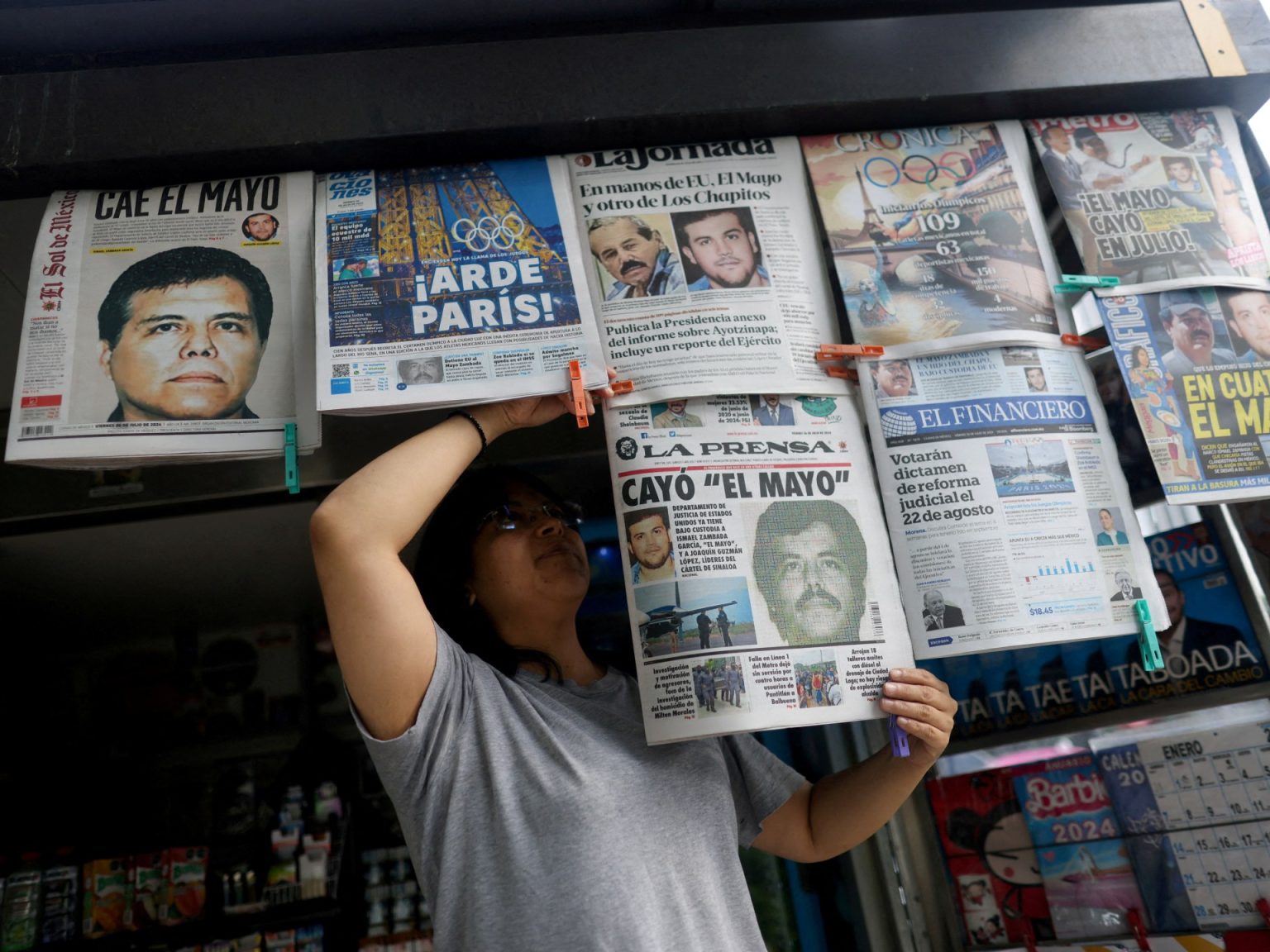Joaquin Guzman Lopez, the son of infamous Mexican drug kingpin Joaquin “El Chapo” Guzman, has been indicted in the United States on drug trafficking and weapons charges. He recently pleaded not guilty in a US court and is being held pending trial. Guzman Lopez was arrested in Texas last week, along with Ismael “El Mayo” Zambada, a key figure in Mexico’s Sinaloa cartel. The circumstances of their arrest remain unclear, with conflicting accounts of whether Zambada was willingly brought to the US or forcibly kidnapped. Zambada has also pleaded not guilty to drug charges.
The arrest of Guzman Lopez and Zambada has raised questions about the tactics used by US authorities and has led to an investigation by Mexican authorities. The capture has also sparked concerns about potential violence within the Sinaloa cartel, which has been plagued by infighting between Zambada’s followers and the sons of “El Chapo”. Mexican President Andres Manuel Lopez Obrador has appealed to drug cartels to avoid confrontation and not to put innocent lives at risk. Despite these concerns, there have been no reports of increased violence following the arrest of Guzman Lopez and Zambada.
The Sinaloa cartel, led by figures like Zambada and “El Chapo”, has been responsible for a significant amount of drug trafficking into the United States, including deadly drugs like fentanyl and methamphetamine. Zambada’s arrest has been hailed as a major blow to the cartel, which has long been a key player in the illicit drug trade. The ongoing conflict within the cartel between different factions vying for power has only added to the instability in the region. The conviction of “El Chapo” in 2019 further weakened the cartel’s leadership.
The arrest of Guzman Lopez and Zambada has drawn international attention to the ongoing battle against drug trafficking and organized crime. Both Mexico and the United States are facing challenges in combating the influence of cartels like the Sinaloa cartel, which have long evaded law enforcement efforts. The complex relationship between these criminal organizations and the authorities highlights the difficulties in tackling drug trafficking and the violence that often accompanies it. The indictment of Guzman Lopez and the ongoing investigation demonstrate the commitment of authorities to hold those involved in drug trafficking accountable.
As the legal proceedings against Guzman Lopez and Zambada unfold, the impact on the Sinaloa cartel and the broader drug trade remains to be seen. The arrest of these high-profile figures has sent a message to other cartel members that law enforcement will continue to target those involved in illegal activities. The conflict within the Sinaloa cartel, which has already resulted in violence and instability, may intensify as rival factions vie for power in the absence of key leaders like Zambada and “El Chapo”. The outcome of this case could have far-reaching consequences for the future of drug trafficking in the region and the efforts to combat organized crime.


